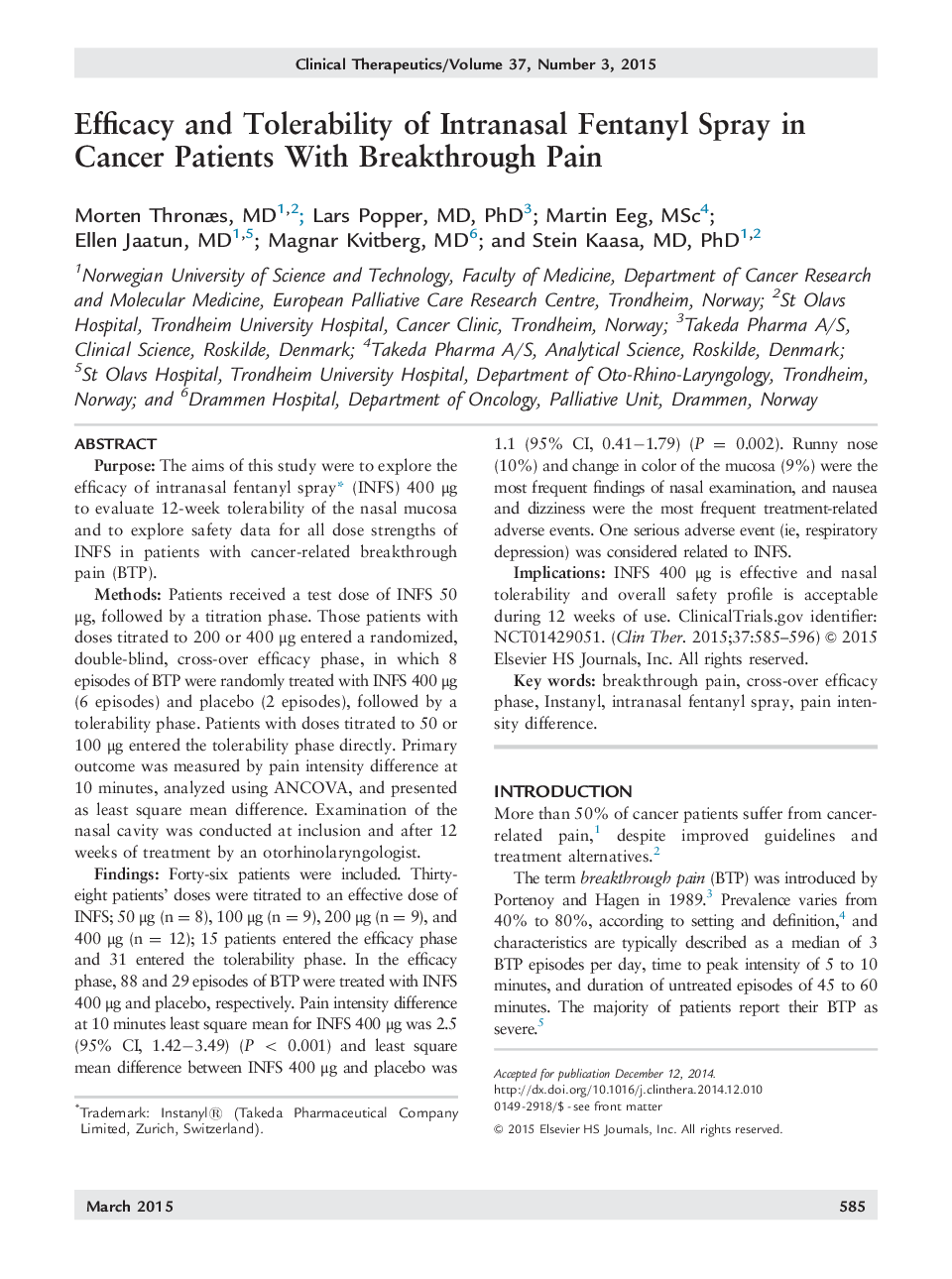| کد مقاله | کد نشریه | سال انتشار | مقاله انگلیسی | نسخه تمام متن |
|---|---|---|---|---|
| 5825024 | 1119884 | 2015 | 12 صفحه PDF | دانلود رایگان |
PurposeThe aims of this study were to explore the efficacy of intranasal fentanyl spray* (INFS) 400 μg to evaluate 12-week tolerability of the nasal mucosa and to explore safety data for all dose strengths of INFS in patients with cancer-related breakthrough pain (BTP).MethodsPatients received a test dose of INFS 50 μg, followed by a titration phase. Those patients with doses titrated to 200 or 400 μg entered a randomized, double-blind, cross-over efficacy phase, in which 8 episodes of BTP were randomly treated with INFS 400 μg (6 episodes) and placebo (2 episodes), followed by a tolerability phase. Patients with doses titrated to 50 or 100 μg entered the tolerability phase directly. Primary outcome was measured by pain intensity difference at 10 minutes, analyzed using ANCOVA, and presented as least square mean difference. Examination of the nasal cavity was conducted at inclusion and after 12 weeks of treatment by an otorhinolaryngologist.FindingsForty-six patients were included. Thirty-eight patients' doses were titrated to an effective dose of INFS; 50 μg (n = 8), 100 μg (n = 9), 200 μg (n = 9), and 400 μg (n = 12); 15 patients entered the efficacy phase and 31 entered the tolerability phase. In the efficacy phase, 88 and 29 episodes of BTP were treated with INFS 400 μg and placebo, respectively. Pain intensity difference at 10 minutes least square mean for INFS 400 μg was 2.5 (95% CI, 1.42â3.49) (P < 0.001) and least square mean difference between INFS 400 μg and placebo was 1.1 (95% CI, 0.41â1.79) (P = 0.002). Runny nose (10%) and change in color of the mucosa (9%) were the most frequent findings of nasal examination, and nausea and dizziness were the most frequent treatment-related adverse events. One serious adverse event (ie, respiratory depression) was considered related to INFS.ImplicationsINFS 400 μg is effective and nasal tolerability and overall safety profile is acceptable during 12 weeks of use. ClinicalTrials.gov identifier: NCT01429051.
Journal: Clinical Therapeutics - Volume 37, Issue 3, 1 March 2015, Pages 585-596
